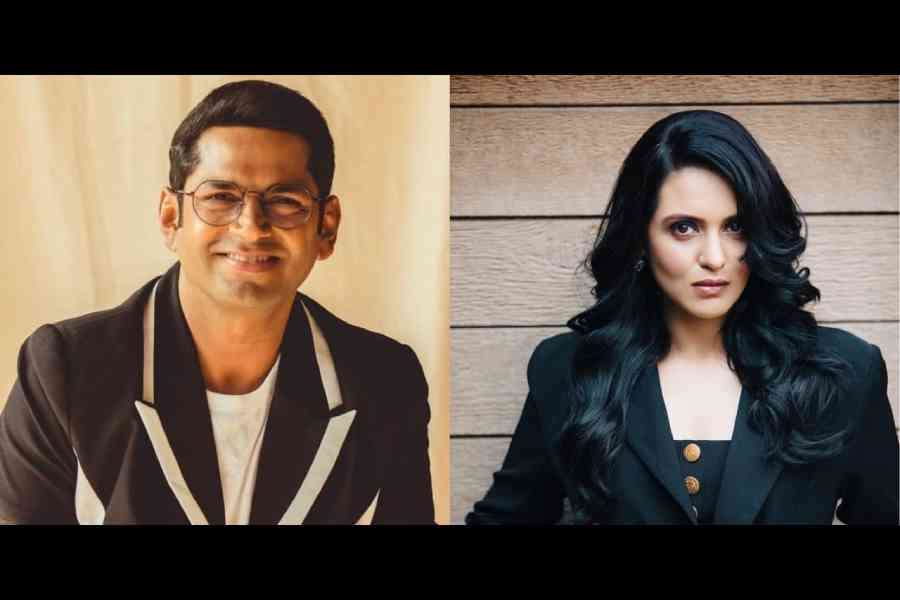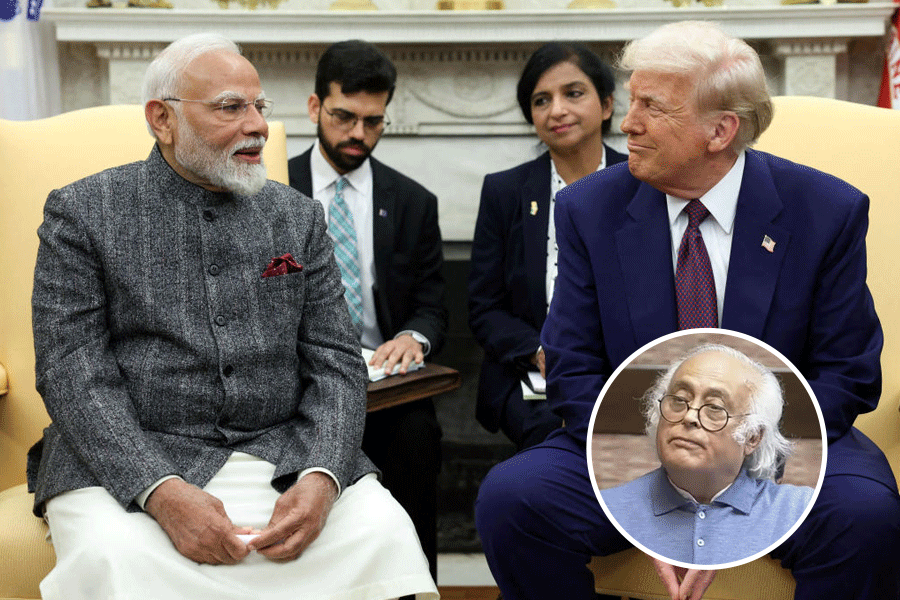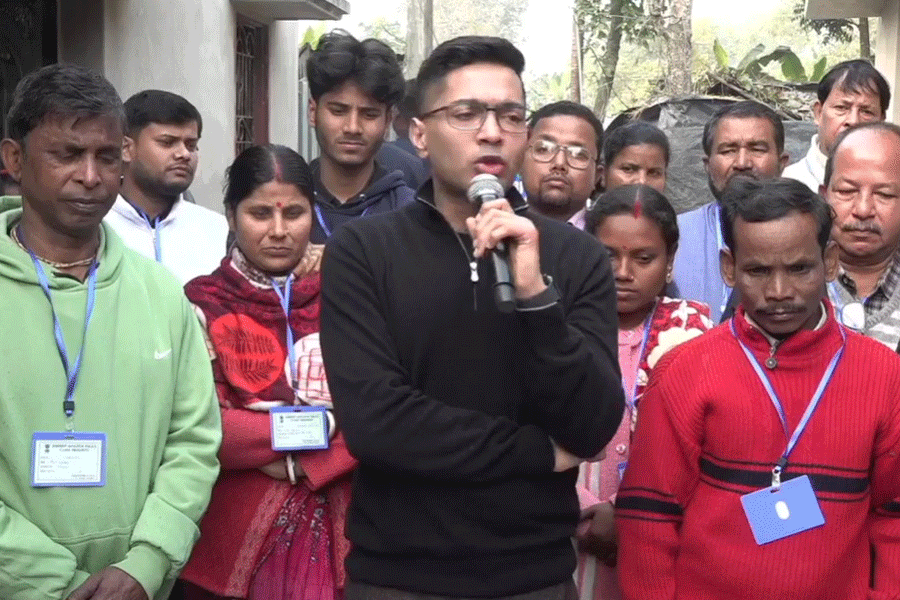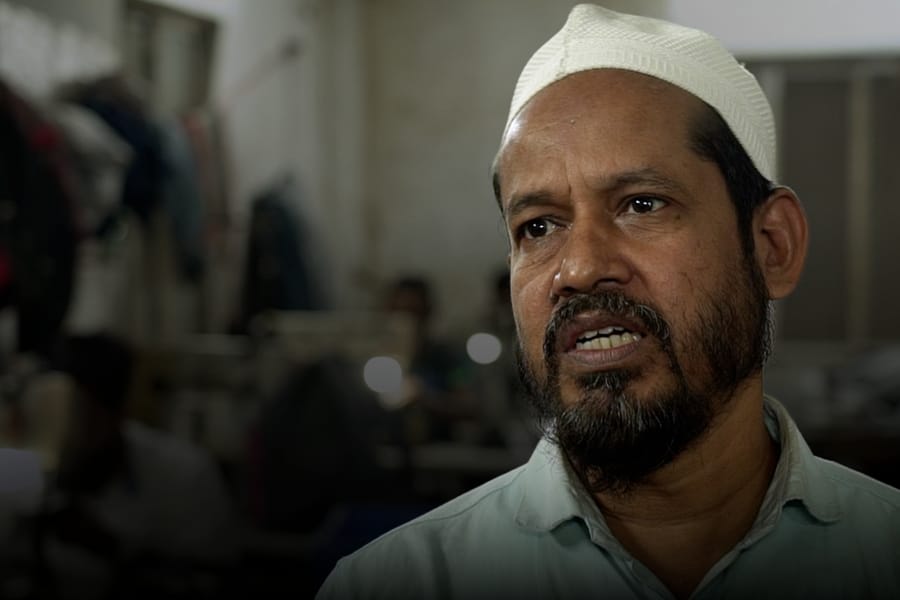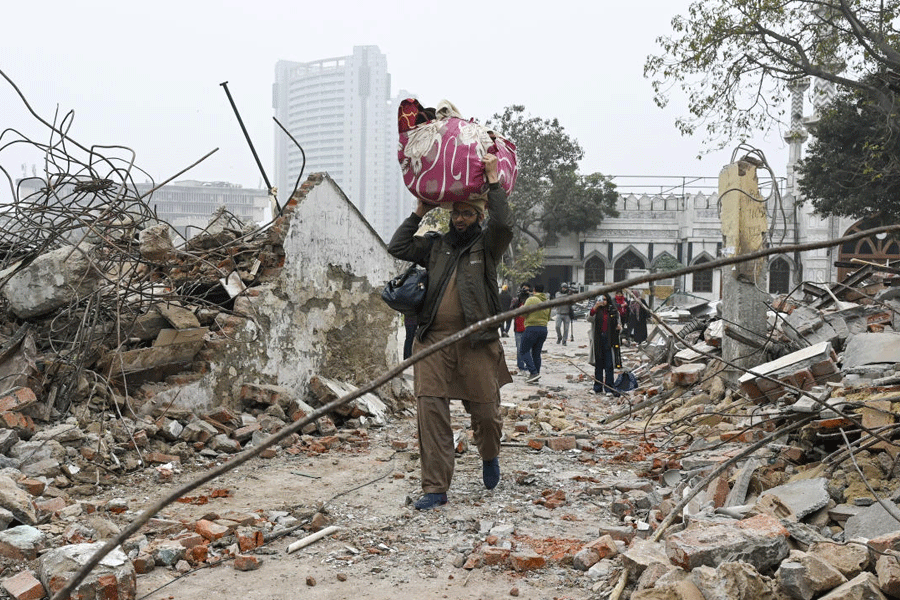Director Aneek Chaudhuri is all set to start the shoot of his new film The Zebras, starring Sharib Hashmi, Priyanka Sarkar and Usha Banerjee. The film, produced by Akhil Murali and Ashik Murali under Yulin Productions, Kerala, revolves around the topic of Artificial Intelligence and its effect on the world of fashion. A t2 chat with Aneek.
What’s the starting point of the film?
It’s an alarming phase when we are almost becoming dependent on technology; depending is a convenient phase until it becomes our master. Gradually, AI is creeping into our lives, making itself as indispensable as nature and as addictive as a dose of morphine. So, we ought to find a way out. That became the starting point of the film. For the first time, our ego is actually letting it slide away under the convenience of machine technology.
What’s the storyline?
The tale unfolds in a chaotic city where people are surrounded by dreadful monsters all around. The Zebras is a daunting commentary on the rise of AI and its detrimental impact on mankind; calling for detoxification devoid of any kind of technology. The Zebras is the audacious tale of a documentary photographer named Apeksha (Usha Banerjee), an aged vintage photographer Pawan (Sharib Hashmi) and a model Sumehra (Priyanka Sarkar).
Why did you decide to deal with AI in your film?
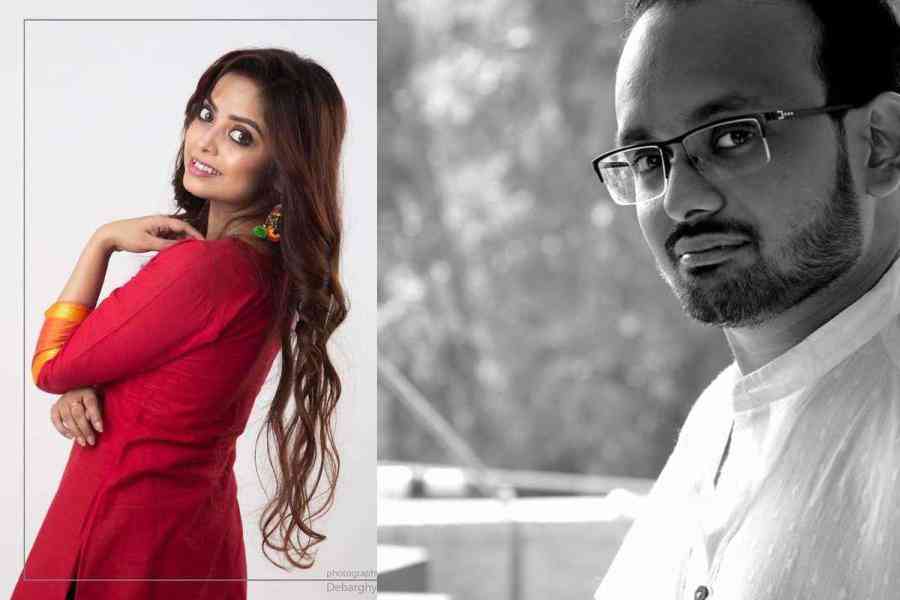
Usha,Aneek
AI is becoming too overpowering on our lives. Artificial Intelligence (AI) is a powerful and transformative technology that has the potential to revolutionise various aspects of our lives.
One of the most discussed concerns regarding AI is its potential to automate tasks and replace human jobs. This can lead to unemployment and economic instability, particularly in industries where AI can perform tasks more efficiently and cost-effectively than humans.
AI systems are often trained on large datasets, which can inadvertently contain biases. This can lead to AI systems perpetuating or even exacerbating existing societal biases and discrimination, particularly in areas like hiring, lending, and criminal justice.
AI systems can process vast amounts of personal data, which raises significant privacy concerns. Unauthorised access to this data or the misuse of AI-powered surveillance systems can result in serious privacy breaches.
The development of AI that possesses advanced decision-making capabilities raises ethical questions. For instance, autonomous vehicles may face moral dilemmas in critical situations, where they must choose between protecting the driver or pedestrians.
AI can be exploited for malicious purposes, such as creating deep fake videos, launching cyber attacks, or spreading disinformation. The increasing sophistication of AI in these areas poses significant security threats.
The benefits of AI may not be equally distributed, potentially exacerbating economic inequality. Companies and individuals with access to advanced AI technology may gain disproportionate advantages, leaving others behind.
As AI systems become more prevalent, there is a risk of people becoming overly dependent on them, leading to a decline in critical thinking and problem-solving skills. Additionally, there’s a growing gap between the skills needed to work with AI and the skills of the existing workforce.
In fields like healthcare and customer service, AI may replace human interactions, potentially leading to a loss of empathy and personal touch in these domains.
AI systems can exhibit unexpected behaviours or vulnerabilities that are hard to predict. These unintended consequences can be difficult to address once they emerge.
What are you trying to say through the film?
I am just projecting what I see in front of me. I am just projecting my fear. Doesn’t matter if it’s the hunter or the prey, we tend to succumb to the monstrous aftermath of AI. It’s the loop of some sort of psychedelic music, say Zeppelin or The Doors, we tend to groove in with a never-ending array of concentric circles; I could relate it to AI. We are sort of addicted to our convenience at the cost of even compromising our peace. This, I think, is the perfect time to come out with such a topic and I am trying to be brave enough to narrate my insecurities.
Why make the film in Hindi?
I wanted to reach out to the masses. This topic needed a widespread scale. Being brought up in a city like Delhi, I am well-versed in Hindi.
Tell us about your casting choices.
Sharib is a great actor, very down-to-earth and modest. I wanted someone who is still less affected by the dirt of the competition and stays grounded to his roots. Moreover, Sharib has portrayed an array of characters recently that have actually touched me with his range or versatility. But, I would actually say that when I was writing the film, I could visualise no one but Sharib.
I desperately needed someone who could look good as both, a slum girl and a posh model. I needed someone who could portray such a transition; I needed someone who could express such a landscape of emotions on her face. Most importantly, I wanted someone to be on the same page; and Priyanka was! Usha has been my support since I was doing this transition from arthouse cinema to mainstream films.
What’s the concept behind the film’s title?
The contrast between the black and white stripes on a zebra’s body might evoke thoughts about dualism in philosophy, such as the mind-body problem or the duality of good and evil.
Zebras are part of the natural world and their stripes could be seen as a representation of the patterns and chaos found in nature. Philosophers might contemplate the order and disorder in the natural world through the symbolism of the zebra. I am inspired by both to choose such a title for the film.
Arindam Chatterjee

